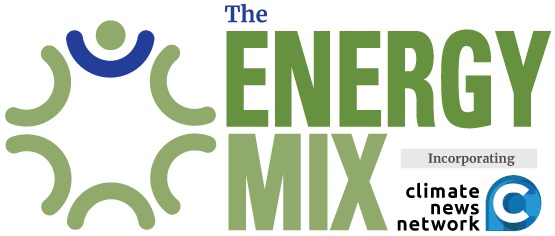Connect Climate to Other Issues, Think Tank Urges, After Polls Show Lagging Public Attention
Two recent polls show that while Canadians remain concerned about climate change, it still comes in behind economic and cost-of-living issues.
The results imply that climate communicators should try to drive action on climate change by emphasizing its connections to those other issues, says a leading climate communications think tank.
With Canadians consistently prioritizing concerns about the cost of living, health care, housing, and the Donald Trump administration, “climate change has slipped down the list of urgent public issues, with only 15% now ranking it among their top three concerns,” writes Abacus Data, in an analysis of its recent polling. The drop in rank put climate change in the number eight spot among 13 listed issues, with 14% including it in their top three concerns.
“While still important, climate change is being overshadowed by more immediate, day-to-day worries.”
The poll also found that the number of Canadians saying they were moderately to very concerned had risen 15% since October 2024—from 66% to 77%, with the greatest increase among those who described themselves as “very concerned”.
Abacus suggested that with Canadians “increasingly preoccupied with pressing issues such as the cost of living and housing affordability,” the drop in overall priority for climate change indicated “a scarcity mindset is framing their priorities at the moment.” The 2025 results bring the level of concern roughly back up to 2023 levels, as the 2024 results were framed as a 14% drop from the year before.
Market research and analytics company Leger released its own poll around the same time, directed at gauging Canadians’ satisfaction with the new federal government’s performance so far. The Leger poll includes a ranking of the issues Canadians consider most important, and it also lists climate change and extreme weather eighth on a list of 14 options, with only 4% claiming it as the top issue. In 2019, climate change was third in the list and the top concern for 30% of respondents.
The polls showed similar rankings for other issues, as well, agreeing on six of the seven concerns ranked above climate change, although they appeared in different order. The top two concerns in each poll—inflation/cost of living and Donald Trump/U.S. tariffs—were roughly the same in both polls, though they appeared in different order.
Despite the broad agreement between the two polls, a spokesperson for the Re.Climate climate communications think tank cautioned against underestimating public concern about climate and hindering motivation for action. Resource and Training Director Ghadad Alrasheed said the “dropping of priority [in the Abacus poll] points not to a declining concern but more to the fact that there is a communication gap on climate as an issue that impacts many aspects of our life.”
She added that “Canadians are connecting the dots between climate change and extreme events, but not much when it comes to the fact that it is jeopardizing all the other issues people are concerned about, including affordability, heath care, and immigration.”
The means communicators should stay focused on why climate action is important, while also linking their messaging to the present moment, Alrasheed told The Energy Mix. At the moment, that means connecting the dots between climate change and the diverse impacts it can have on other issues, as well as the benefits of climate action that go beyond emission reductions.
In its past research, Re.Climate found that messaging must also be tailored to different audiences. While people already engaged in climate issues are best motivated by possible gains from climate action, audiences that are less engaged or unconcerned may be more open to hearing about what can be lost by failing to act.
Cover photo: BC Ministry of Transportation/Flickr.



